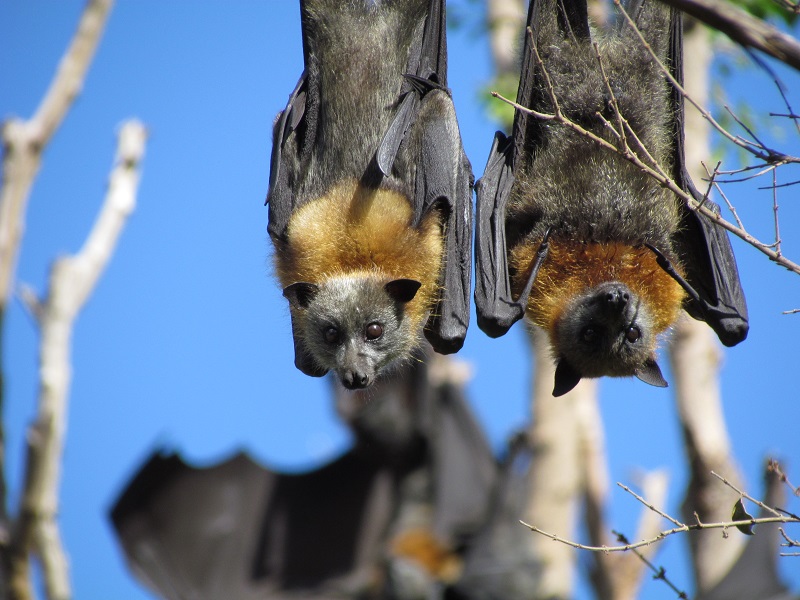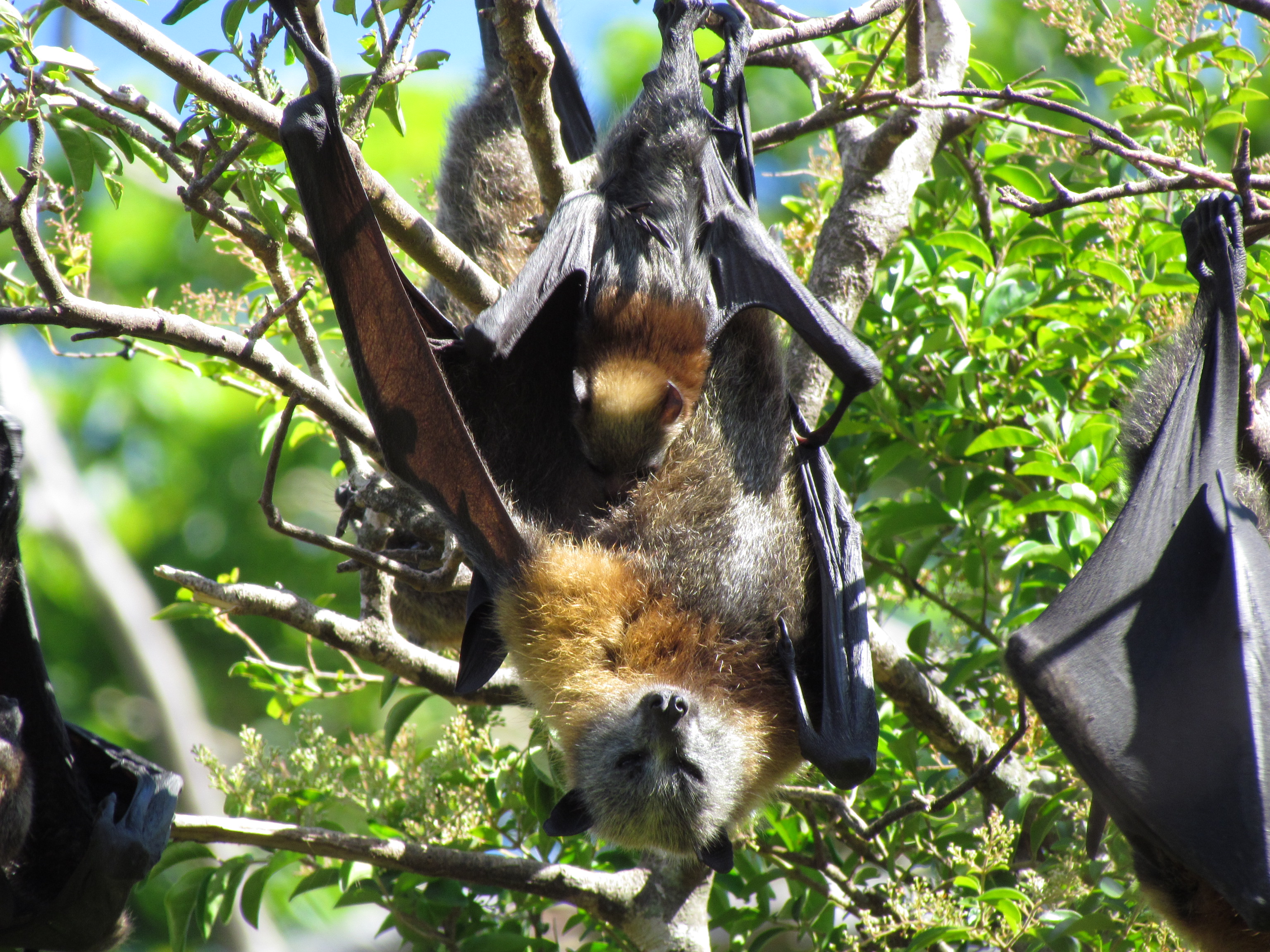Grey-headed flying-foxes are at risk of extinction. Much of their natural habitat has been cleared for development and they are moving into urban areas.
 Grey headed flying fox - Kareela camp
Grey headed flying fox - Kareela camp

The Grey-headed flying-fox (Pteropus poliocephalus) is Australia's largest megabat. Named for their grey head and body, they have a rust-coloured collar around their necks, and a wingspan up to 1m. Their large eyes and heightened sense of smell enable them to navigate their surroundings and find food.
Grey-headed flying-foxes are nomadic mammals who travel across Australia, feeding on native blossoms, fruits and seeds, and pollinating plants. They are vital to the health and regeneration of Australia's native forests, as they can fly vast distances (up to 50km per night) transporting pollen and dispersing larger seeds.
Grey-headed Flying-foxes are found up and down the eastern coast of Australia, primarily in urban areas, forests, and woodlands. They live in camps ranging from hundreds to thousands of animals. Although they may appear more abundant due to the size of some camps, recent surveys suggest an overall decline in their population. Urbanisation has led to flying-foxes moving into urban areas, possibly due to environmental conditions, food shortages, or fewer predators.
Grey-headed flying-foxes are nocturnal frugivores and nectivores, which means they fly out at dusk to consume fruits, pollen, and nectar from flowers, and return to their camps at dawn. They have rough tongues for fruit peeling and separation, and have a very fast digestive system.
Flying-fox females usually give birth to one pup per year. Pups are born in September and October and carried by their mother for 3-4 weeks while they nurse. They are then left in the camp overnight with the other pups. This is known as a 'creche'. After three months, they can fly and feed independently. Grey-headed flying-foxes can live up to 15 years in the wild.
Grey-headed flying-foxes are a vulnerable native mammal protected by state and federal legislation, including the NSW Biodiversity Conservation Act 2016 and the Commonwealth Environment Protection and Biodiversity Conservation Act 1999. Therefore, Council is unable to undertake any actions which may result in harm to the flying-fox without both state and federal approval.
Living near flying-foxes can be difficult. Council acknowledges they can be noisy and create mess and odour. For these reasons, flying-fox camps tend to be unwelcome in most urban environments, particularly during breeding season (March to June) when the size of the camps is known to increase significantly.
Check our Living with Flying-foxes page for more information.
Flying-fox camps can also evoke concerns around human health. While it is true that some flying-foxes (experts estimate less than 1% of the wild population) have been found to carry viruses such as Australian Bat Lyssavirus and Hendra virus, the risk of contracting any disease directly from a flying-fox is minimal provided no direct handling occurs.
NSW Health advises that there is no risk to the public from working, playing, or residing near a flying-fox camp, or from contact with their droppings or urine. The only risk to members of the public is from direct contact with an infected animal, via a bite or scratch.
Sutherland Shire is home to three Grey-headed flying-fox camps: Kareela flying-fox camp, Camellia Gardens flying-fox camp, and the Desalination Plant flying-fox camp at Kurnell. Other temporary camps pop up from time to time.
Please read our management plans in place:
- Camellia Gardens - Flying-Fox Camp Management Plan
- PDF - 3691 KB - Kareela - Flying-Fox Camp Management Plan
- PDF - 6157 KB - Temporary and Seasonal Camps
- PDF - 4683 KB - Cocos Palm Removal Subsidy
Or check our Managing Flying-Foxes page for more information.
If you find an injured bat or flying-fox, don’t touch it. Contact WIRES (1300 094 737) and they will assign a trained and vaccinated volunteer to help.
Useful links
- Grey-headed Flying-fox (Pteropus poliocephalus) - Fact Sheet.
- Sydney's incredibly misunderstood social mammal - Why our megabats are absolutely crucial to our ecosystems?
- Little Aussie Battlers of our Great Australian Bush - Learn about this species and help protect bats by educating others.
- Flying-foxes - Learn about the different species of flying-fox native to New South Wales.
- Why are flying foxes protected? - Learn why GHFF are protected by law.
- People and wildlife policy - Framework to support managing interactions between people and wildlife in NSW.